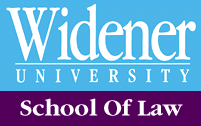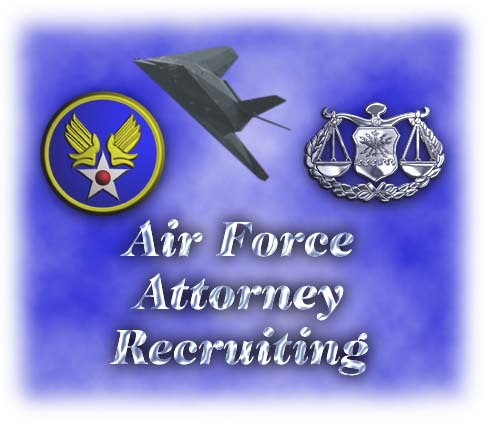 |
COMMUNICATION LAWLAW 867, § R / Spring 2002 / 2 Credits |
WILLIAM MARTIN SLOANE, Adjunct Professorwmsloane@widener.edu - sloane@acfei.com(717) 787-6551, 249-1069, 856-8545; Fax 783-1577 |
|
|
accessible also through |
Concert Suit | Expert Witnesses | PCN | PA Code | PNPA Legal | RIAA v. Napster | Research Links | The West Education Network |
|
BOOK: Franklin, Anderson & Cate, Mass Media Law: Cases & Materials, 6th edn. (Foundation, 2000).
|
|
|
|
| CLASS: DATE 2002 |
Casebook Pages | Supplement Pages | TOPICS |
|---|---|---|---|
| #1: 16 January |
v-vi & 1-57 | . . . | The First Amendment and Government Regulation: |
| #2: 23 January |
57-115 | 2 | The First Amendment and the Media |
| #3: 30 January |
115-169 | . . . | Content-Neutral Regulation of Media |
| #4: 6 February |
169-228 | 2-4 | Content-Based Regulation of Media |
| No Class 13 February |
. . . | . . . | . . . |
| #5: 20 February |
228-280 | 4-5 | Content-Based Regulation of Media [continued] |
| #6: 27 February |
280-335 | . . . | Legal Issues Arising from Publication: |
| No Class 6 March |
. . . | . . . | . . . |
| #7: 13 March |
335-390 | 6 | Defamation |
| #8: 20 March |
390-448 | 6-7 | Protecting Privacy |
| #9: 27 March |
448-509 | 7 | Liability for Emotional, Economic, and Physical Harm |
| #10: 3 April |
509-558 | 7-8 | Copyright |
| #11: 10 April |
558-614 | 8-10 | Legal Issues arising from Newsgathering: Newsgathering Torts |
| #12: 17 April |
614-671 | . . . | Subpoenas and Searches |
| #13: 24 April |
671-726 | 10-11 | Acces to Information |
| #14: 1 May |
727-779 | 11-12 | Access to Judicial Proceedings |
| #15: 8 May |
6:30 p.m. | FINAL | EXAMINATION |
![]()
REQUIREMENTS: (1) Students should read all of the principal cases in the casebook, according to the above schedule, and should be prepared to recite oral briefs and answer questions in class. As time permits, students should endeavor to read the textual material and attached supplement, although the instructor will cover most of the important information by lecture. (2) Students should check the course TWEN page periodically for announcements and other information posted by the instructor or by other students. (3) Students will take a traditional, in-class, closed-book final examination consisting of three essay questions, each weighted equally. The questions will be based on issues raised in the casebook and/or supplement and/or class discussion.
ATTENDANCE: The ABA and Widener University policy is that students must attend at least 11.2 classes without exception. No excuses can be accepted for failing to meet this residency requirement. Anyone who misses 2.9 or more classes will receive a course grade of "W"; the instructor will endeavor, but does not guarantee, to notify students who are approaching this limit. Arriving late or leaving early is counted as a partial absence. A student who misses the roll call at the beginning of class is irrebuttably presumed to be absent unless he/she makes his/her presence known to the instructor immediately after class.
COMMUNICATION: Students are encouraged to contact the instructor at any time, either privately via email or phone, or publicly via the TWEN bulletin board for the course. Individual meetings can be arranged on campus or at the Capitol.
GRADING: The course grade will be determined by the grade received on the final examination, which may be raised or lowered by one grade (e.g., from B+ to A-, or from C to C-) on the basis of the student's class participation. The instructor will be available over the summer to review the final exams with any student who is interested and to suggest means for improvement in writing successful essay answers.
|
MINIMUM FAULT STANDARD FOR EACH LIBEL ELEMENT |
At |
After New York Times Co. v. Sullivan (1964) |
After Gertz v. Robert Welch, Inc. (1974) |
After Dun & Bradstreet v. Greenmoss Builders (1985) |
After Philadelphia Newspapers v. Hepps (1986) |
|
Publication |
At least negligence |
At least negligence |
At least negligence |
At least negligence |
At least negligence |
|
Identification |
Strict liability |
Strict liability, but must actually identify |
Strict liability, but must actually identify |
Strict liability, but must actually identify |
Strict liability, but must actually identify |
|
Defamation |
Strict liability |
Strict liability |
Strict liability, but P who cannot prove actual malice (as to falsity) must prove actual injury |
Strict liability, but P who cannot prove actual malice (as to falsity) must prove actual injury |
Strict liability, but P who cannot prove actual malice (as to falsity) must prove actual injury |
|
Falsity |
Strict liability, with burden on D to prove truth |
Strict liability, with burden on D to prove truth; but if P is a public official being criticized for performance of official duties, then P must prove actual malice |
(Topic is of public concern): At least negligence, with burden on D to prove truth; if P is seeking presumed or punitive damages, or if P is a public figure seeking ANY damages, then P must prove actual malice |
(Topic is of private concern): Same as before, but as long as P is a private figure, then negligence is sufficient to receive presumed or punitive damages |
If there is a media D and the topic is of public concern, then P (public or private figure) must prove falsity
Wm. Martin Sloane |
 Life After Law School: Aim High!
Life After Law School: Aim High!